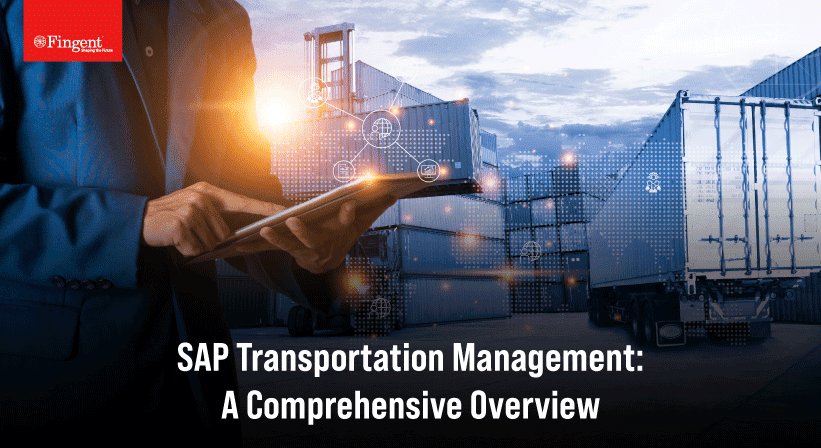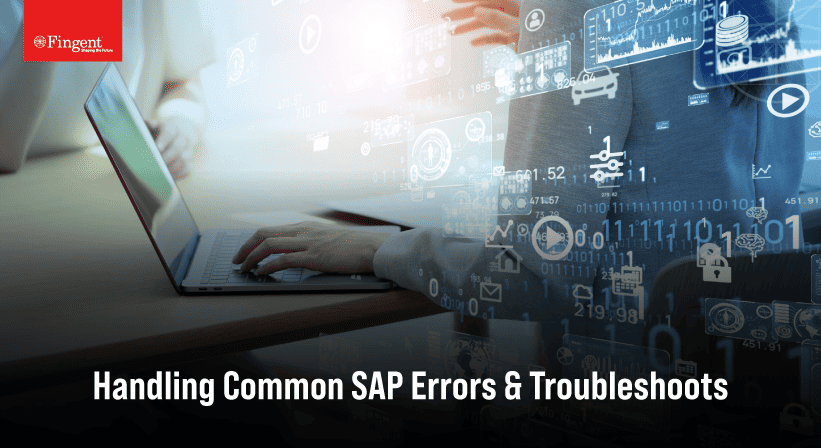Boost Your Business with SAP Analytics Cloud
Warning: in_array() expects parameter 2 to be array, null given in /home/www/fingenttest/public/wp-content/themes/fingent/template-parts/content.php on line 37
Warning: in_array() expects parameter 2 to be array, null given in /home/www/fingenttest/public/wp-content/themes/fingent/template-parts/content.php on line 81
Regardless of its size, every business needs to work seamlessly with perfect efficiency to stand out and be noticed. Among the many different essentialities that course through the veins of a business, data allocation and decision-making are two important ones. Although it may seem like just a part of the nitty gritty, it plays a paramount role.
In this article, we will understand what data allocation is all about, and we will familiarise ourselves with how SAP Analytics Cloud can help with data allocation.
Understanding Data Allocation
Before we move any further, let us first thoroughly understand data allocation. Data Allocation is essentially an intelligent distribution system that places your data fragments into sets to improve overall database performance. It also drastically reduces the costs of transaction processing and enables owners to distribute revenue, expense, and statistical amounts across multiple business units, departments, and even other businesses.
Traditional data systems such as data warehouses and relational databases have existed for nearly 30 years. Although “old is gold,” it does not apply in this case. These traditional, or quite frankly outdated, systems have many challenges that cannot always be overlooked. A few of these key challenges faced by traditional data allocation methods that lead to the creation of modern systems are –
- Large data is too big for traditional storage
- Data can be of higher complexity
- Data quality tends to drop during allocation
There are many reasons why data allocation is beneficial to a business in terms of its performance and decision-making; listed below are some of those benefits:
- Employees’ relief – data allocation removes a lot of unnecessary strain from accountants or employees as it eradicates the mundane nature of this task.
- Client satisfaction – An optimal resource allocation system identifies the most appropriate team with complementing skills that cross-section to deliver perfect results for the project.
- Increased decision-making accuracy – With the correct data and analytics tools, businesses can make accurate and appropriate decisions in real time, ultimately leading to an increase in accuracy and efficiency.
- Boosts risk management and mitigation – By allocating data, businesses have a better insight into any potential risks and can take proactive measures to mitigate them deftly. This can help your business avoid costly mistakes and prepare you for the impact of unforeseen attacks.
Introduction To SAP Analytics Cloud
SAP, short for Systems, Applications, and Products, is a leading software company founded in 1972. It is essentially a software supplier, and ERP software systems are created and supervised by SAP. SAP Analytics Cloud was released in 2015 and is a cloud product that offers services (SaaS) for business intelligence (BI), planning, and predictive analytics. Its united and highly secure cloud maximizes data-driven decision-making for businesses.
The three fundamental components of SAP are:
- Business Planning – for data collection and analysis
- Business Intelligence – for reporting, data discovery, and visualization
- Predictive Analytics – for future-proofing and compliance
The SAP Analytics Cloud comes with several benefits, including enterprise planning tools and tools to align your company’s expenses and cost strategies. These are helpful in fields like HR, Sales, IT, and Marketing.
The SAP Analytics Cloud’s allocations feature is a widely famous and useful tool for businesses to analyze and designate values on objects on the driver. Regardless of whether you are a seasoned SAP Analytics Cloud user or a novice to the platform, the cloud has a solution to almost any problem a user may face. With its seamless integration, enticing design, and advanced capabilities, this Cloud offers a compactable solution for large and small businesses with customizable dashboards, enhanced reporting features, and easy-to-use tools.
Read more: SAP Customer Experience: Creating Seamless Omni-Channel Experiences.
Optimizing Data Allocation With SAP Analytics Cloud
Optimization of data is the process of extracting, analyzing, and storing data for maximum efficiency. There are innumerable optimization tools on the internet, and although they each have their own unique features, SAP Analytics Cloud is known to be the best. With this solution, there is a wide array of optimization under-structures. A few of them are Browser/Client Optimization, Analytical Application Optimization, Story Optimization, Planning and Data Action Optimization, Network Optimization, and Backend Optimization.
SAP Analytics Cloud fulfills the needs of data visualization, budget planning, and predictive analytics perfectly. SAP developed it as an unabridged SaaS-based product that would have no shortcomings. It holds up this reputation by covering a wide range of needs, from data visualization, budget planning, and predictive analytics to automated data allocation, collaborative planning and budgeting, centralized data repository, and real-time integration.
Use Case: Successful Implementation Of SAP Analytics Cloud For Data Allocation
It must already be clear by now that SAP Analytics Cloud is a brilliant tool that can benefit any organization that uses it. Digressing from it will weaken your business’s reputation and functioning. This cloud system is put to extensive use in many sectors of society; three of the major sectors are:
- Financial Sector – It is used for large-scale budget streamlining and forecasting analytics processes.
- Manufacturing Industry – In this industry, the cloud allocates resources and optimizes production planning.
- Retail Sector – The retail sector has recently tapped into the potential of SAP Analytics, and they enjoy it completely by using it for managing inventory and demand chain predictions.
Best Practices For Implementing SAP
Similar to the implementation processes of many advanced technologies, even SAP Analytics Cloud has a set pattern to follow for maximum efficiency.
1. Define Clear Data Allocation Objectives And KPIs
Starting with a crystal clear vision always helps. Keep your Business Intelligence and Business planning locked and loaded before the implementation begins.
2. Collaborative Planning And Involving Stakeholders
This step is usually overlooked, but that would be a mistake. It is imperative to keep your business stakeholders in the loop for any implementation as it will cost the organization money, and stakeholders need to be able to organize a budget for it. Collaborative planning within the company will also boost the process and make it more secure.
3. Ensuring Data Accuracy And Integrity
This can be achieved through proper validation and cleansing. Running through multiple models before the final implementation is vital. Business data is highly confidential; therefore, ensuring its accurate integration and clear integrity is a top priority.
4. Continuous Monitoring And Optimization Of Data Allocation Processes
The last practice would be to complete maintenance after implementation. Aftercare is important. Keep an active eye on the cloud’s allocation processes and optimization habits.
Future Trends And Innovations In SAP Analytics Cloud
The SaaS service is an ever-evolving and continuously progressing service with new features consistently popping up. The future of SAP Analytics Cloud is bright, and investing in it at the earliest is a great way to be a part of this future. Three of the biggest trends and innovations in SAP Analytics Cloud are:
1. Integration With Emerging Technologies
The involvement of any form of advanced emerging technology already promises a skyrocketing rate of progress. These technologies will enable SAP Analytics Cloud with real-time integration and processing, among many other things.
2. Embedded Analytics And Real-Time Insights For Faster Decision Making
Alongside data allocation, SAP Analytics Cloud thrives in efficient decision-making. With its embedded analytics and consistent real-time insights, the whole daunting decision-making process will be overtaken by this cloud.
3. Predictive Analytics For Proactive Resource Allocation And Forecasting
Lastly, this cloud service is bound to enhance its predictive analytics for more appropriate resource allocation and demand predictions. This is probably the most impactful trend that can emerge in SAP Analytics Cloud as it can make your business future-proof and ready.
Read more: A Simple Guide To Handling Common SAP Errors & Troubleshoots.
How Fingent Can Help
Fingent provides certified experts for a client-centered service with transparency and good communication. These experts utilize the latest and fast-emerging advanced technology to make your SAP S/4HANA implementation process easy and flawless. We assist our clients through every step of the implementation process and even provide excellent post-implementation support by monitoring performance, addressing user feedback, and providing any necessary fixes.
Give us a call, and let’s talk about how we can make SAP Analytics Cloud work for you.
Stay up to date on what's new

Recommended Posts

15 Nov 2023 B2B
SAP S/4HANA Cloud Migration – All that You Need To Know!
“Our future success is directly proportional to our ability to understand, adopt and integrate new technology into our work.” – Sukant Ratnakar – CEO, Quantraz Inc. Since the dawn of its……

23 Aug 2023 Logistics B2B
SAP Transportation Management: A Comprehensive Overview
SAP software, as most of us know, is a tool used to control all aspects of critical business functions specifically. It integrates and automates key processes, ultimately helping organizations run……

30 Jul 2023 B2B
SAP Customer Experience: Creating Seamless Omni-Channel Experiences
Businesses find themselves at a critical juncture as customer expectations soar and their loyalty hangs by a thread. The key to captivating and retaining customers lies in mastering the art……

28 Jun 2023 Logistics B2B
Top 5 Ways SAP S/4HANA Can Improve Your Supply Chain Management
SAP S/4HANA is a catalyst for business success, weaving its transformative power across the ERP landscape. SAP S/4HANA is more than just any software; it's a realm of possibilities. It……
Featured Blogs
Stay up to date on
what's new












